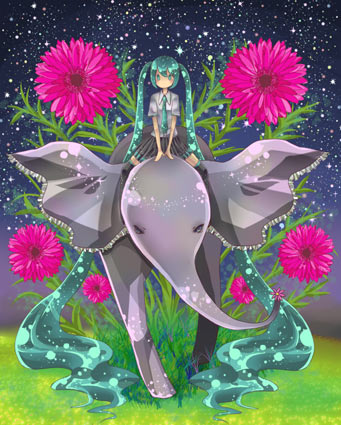In Japanese there are some amusing phonetic conventions that get used in advertising, which are interesting for a gaijin to observe and catalog. First of all, the word zoh 増 means “more” (as in “50% more free”), but in the form of 象 (same pronunciation) it’s also the word for elephant, and it’s not uncommon for a TV commercial to make use of elephants to reinforce the image of getting more free buy buying such-and-such brand. Similarly, rakuda is the word for camel (駱駝, though these kanji are archaic, so it’s usually written in katakana as ラクダ), but it also means “[this] is very comfortable and convenient” (楽だ), so it’s common to see TV commercials featuring a camel basking in comfort because of some product he purchased. Dogs say “woof!” in English, but to the Japanese the sound is wan! ワン, and some companies create cute dog characters showing that they’re “number wan” in their respective industries. Finally, the word mou もう means “already” but it’s also the local version of “moo” — and so, it’s common for commercial messages to be communicated using cows saying things like, “Stop wasting your money on brand X, already!”

Now with 50% more Miku Hatsune!















